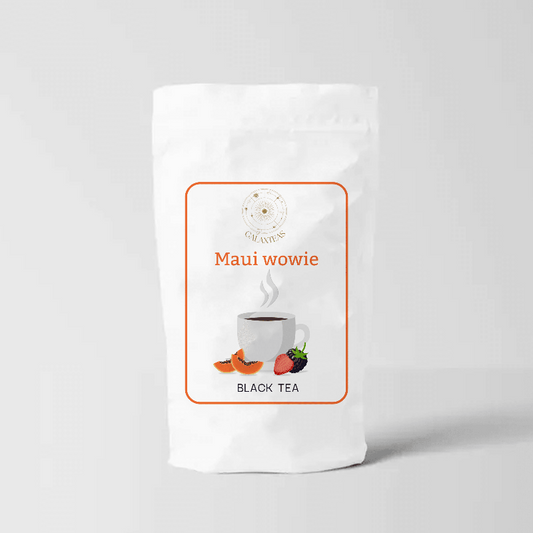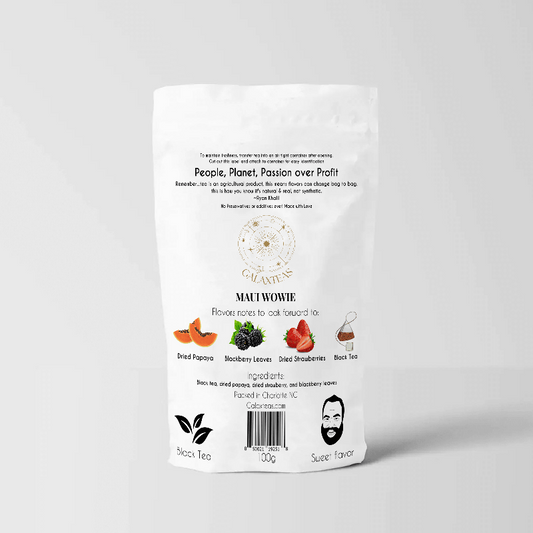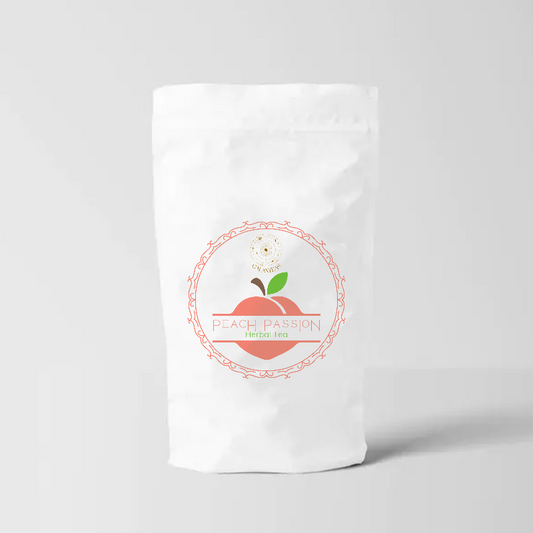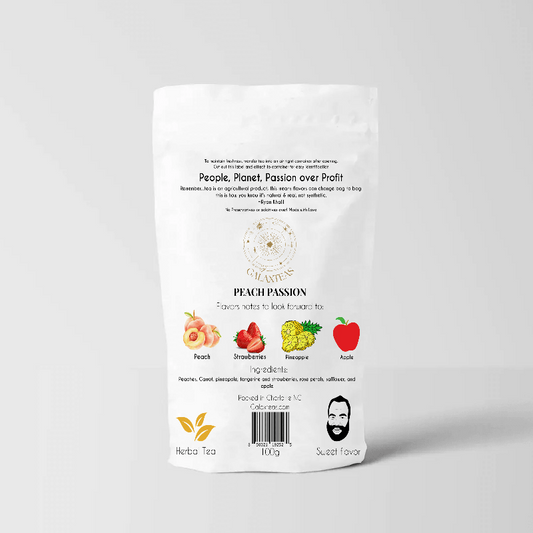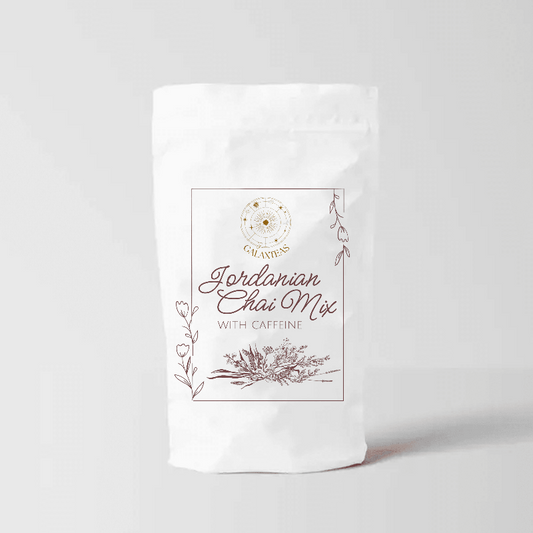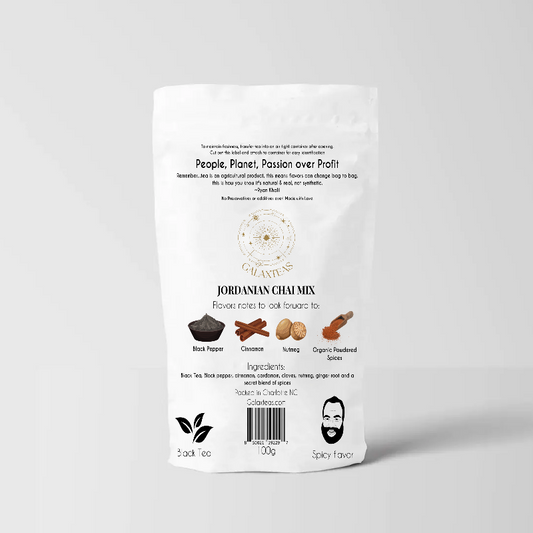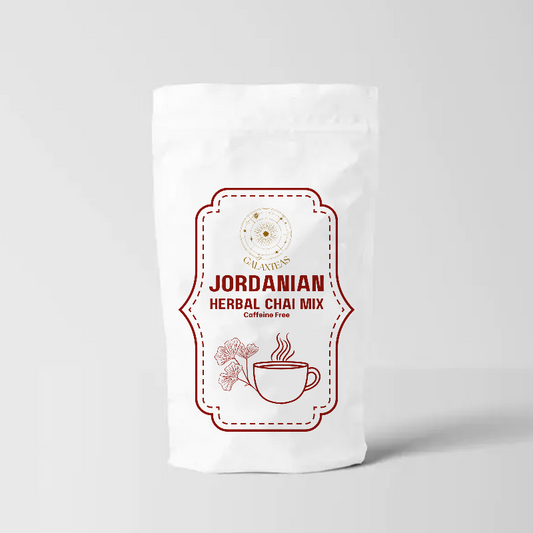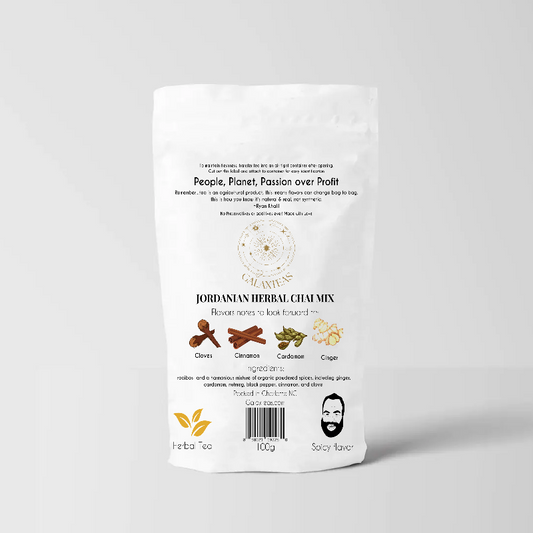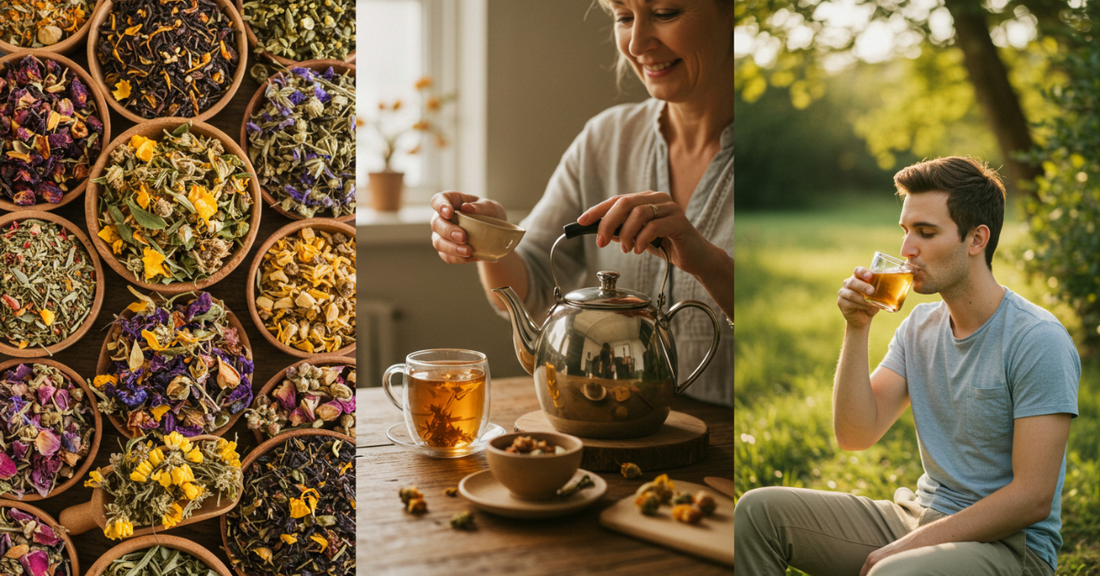What is Herbal Tea & All You Should Know About It
Related Product
Subscribe
Table of Contents
What is herbal tea? Among all the teas – black, white, and green – herbal tea seems like an outcast. After all, it’s not made of the leaves of Camellia sinensis. But you should know that all of the herbal teas offer a refreshing taste and aroma that you shouldn’t miss out on. Plus, it has a lot of health benefits too. Besides, you can’t be a true tea lover if you haven’t tried herbal teas. Are you a beginner? Or a serial tea drinker? Well, this guide is for all of you. Keep reading to find out everything you need to know about herbal tea.
What is Herbal Tea & How it’s made?
Herbal teas, unlike the traditional “true” teas, are made with herbal infusions. This is the reason why they are not usually listed among other tea varieties. Besides, this different composition gives these teas different characteristics and benefits.
Anyhow, here are the main ingredients of herbal teas:
- Herbs
- Spices
- Flowers
- Leaves
- Fruits
You should know that these components are usually used in dried form to brew herbal teas. Usually, people brew the tea by soaking these infusions in hot water. However, they can be enjoyed chilled too. Besides, you can get them in premade bags or loose material.
"Because of their herb flavor and aroma, herbal teas are also called tisanes."
People don’t just wonder what is herbal tea. You may also wonder: why is it called tea when it doesn’t even share the same composition as herbal tea? Well, herbal tea is included in the tea category because it’s brewed with the same technique. Yes, that’s right! It’s steeped and brewed just like black tea white tea or any other conventional tea.
Does Herbal Tea Contain Caffeine?
Teas are known for two things: their enticing flavor and the subtle caffeine kick. So, does herbal tea have caffeine? Well, no, almost all herbal teas are caffeine-free. It is so because they contain infusions of caffeine-free plants. In other words, most herbal teas are made with garden herbs like mint, or flowers or leaves. And they don’t have caffeine like their counterparts like black tea, white tea, green tea or oolong tea. So, if you are looking for a soothing yet caffeine-free beverage, herbal teas may become your new favorite. But hey, the caffeine-free quality doesn’t apply to all kinds. You’ll still have to make sure that the ingredients used in these teas – the herbal ones, are caffeine-free.
Here are some caffeine-containing ingredients in herbal teas:
- Cacao
- Yerba mate
- Guayusa
- Yaupon
When specifically looking for no-caffeine herbal teas, you should watch out for these contents. Besides, herbal teas are recommended for tea lovers who are trying to cut down on caffeine for health reasons.
What’s the Origin of Herbal Tea?
Another similarity that herbal tea shares with the others is its origin. Interestingly, herbal tea was also discovered in China just like its conventional counterparts – black, white, or green. As the legend says, Chinese emperor Shen Nung discovered herbal tea in 2737 BC. And just like most great discoveries, this one was an accident too. Across the globe, people are already using herbs to treat different health problems. So, the Chinese significantly started using herbal tea in traditional medicine.
"Herbal tea as a traditional Chinese medicine proved to be very beneficial for several ailments and afflictions."
In fact, many cultures also believed that herbal tea has spiritual benefits and it was good for the heart and mind’s spiritual connection. Besides, the popularity of herbal tea rapidly spread from China to Japan and then to Egypt. It then became quite famous in various parts of Europe as well. All because of the amazing health benefits it offers.
Different Types of Herbal Tea
As we are exploring what is herbal tea, you should also know about its types too. After all, every herbal tea is made with a different combination of infusions. This includes a variety of dried herbs, leaves, petals, fruits, and other plant components. Besides, all the herbal tea types have different taste profiles and aromas. And if you think this is all, you are thinking wrong. The highlight of these teas is the health benefits they offer.
“Science says that herbal teas can be rich in antioxidants, boost the body’s immunity, and good for heart health – along with other health benefits.” – Harvard Health
Want to know about these herbal tea types? If so, you’ve come to the right place! Here are the most popular kinds of herbal tea, their flavor profile, and their health benefits. So, without any further ado, let’s move on to the next level of your – what is herbal tea – quest:
Teas |
Flavor Profile |
Health Benefits |
|
Chamomile Tea |
Floral, sweet, mild, earthy |
Sleep quality, digestive health, blood sugar, PMS symptoms |
|
Peppermint Tea |
Minty, mildly sweet, bitter |
Antioxidants, antiviral, antibacterial, helps with gut-related problems & nausea |
|
Rooibos Tea |
Nutty, sweet, floral, honey |
Anti-allergy, anti-inflammatory, anti-oxidants, heart health, diabetes |
|
Hibiscus Tea |
Fruity, sweet, tangy |
Heart health, blood pressure, liver health, immune system |
|
Ginger Tea |
Spicy, earthy, citrusy, sweet |
Antioxidants, digestion, nausea, heart health, oral health, stress, period pain |
|
Rose Hip Tea |
Floral, sweet, tarty |
Immunity, joint health, skin, heart health, weight loss |
|
Tumeric Tea |
Earthy, spicy, pungent |
Anti-inflammatory, immunity, brain & heart health, digestion, metabolism |
-
Chamomile Tea
This yellow-colored, delicately floral tea is one of the most beloved herbal teas out there. Why so? Because it soothes yet refreshes the mind in a very unique way. Brewed using chamomile flowers, the tea has subtle flavors and is light-bodied. So, it’s best for your winding down routine. Imagine being tired by the daily grind and you just want to relax in the coziness of your couch. A cup of chamomile tea will be such a great companion for such a time. After all, a sip of it will feel like a hug of relaxation. Besides, you can expect sweet, flower flavors from this tea with mild earthy notes. Besides, you’ll also experience crisp notes of green apples – taking your tea-sipping experience to another level.
|
Did You Know? |
Studies show that chamomile tea is great for improving sleep quality in older adults and women going through postpartum. |
There are a lot of health benefits too. You have to buy chamomile tea and brew it for yourself to unlock them all! Above all, this tea has all the potential to become your next favorite.
-
Peppermint Tea
While we are on our what is herbal tea quest, let’s talk about another popular type: peppermint tea. If you like the flavor of mint in your food or drinks, this one is surely for you. Because of its key ingredient – mint, this herbal tea is really refreshing, Besides, you can expect the overall flavor to be minty (obviously), mildly sweet, and a little bitter with a cooling aftertaste. Moreover, the mouthfeel of this tea is fresh, clean, and super smooth. With each sip, your taste buds are teleported to a soothing ride of delight. For tea lovers, it can be a great addition to their collection. It’s a rich, full-bodied tea and offers you several health benefits.
|
Tea Fact! |
The stomach-related issues peppermint tea can resolve include IBS, indigestion, stomach pain, and nausea. |
Additionally, this tea is packed with antioxidants. Also, it carries anticancer, antibacterial, and antiviral properties. Simply put, this tea is a complete health package. Sip on it and keep a handful of issues at bay.
-
Rooibos Tea
Let’s move on to talking about another popular name among the list of herbal teas. Rooibos tea is a bright-red, rich tea that offers a nuanced taste profile for you to try. It’s full-bodied and ready to give your mind and body a refreshing kick. Made from the Rooibos leaves, it’s not like your regular tea. It’s different – better! After all, the flavors are so complex yet interesting. With each sip, you experience nutty, sweet, grassy, vanilla, floral, honey, and herbal flavors. In fact, you better say that this tea is an experience that can’t be explained in words. Above all, you should buy Rooibos tea for your heart health and helps with diabetes management, has anti-allergy and anti-inflammatory qualities. Plus, it can also be helpful for weight management.
-
Hibiscus Tea
While talking about what is herbal tea and its types, we cannot miss out on hibiscus tea. Whether or not you know about this category of tea, you surely have heard the name hibiscus tea. You should know that hibiscus tea is the most eye-pleasing of them all. It’s because of its deep red color. Besides, it’s popular because of its delightful tangy flavor. You won’t find a lot of tangy teas, so this one is a must-try. Moreover, the overall flavor profile is fruity, sweet, and absolutely delectable. Also, it’s great for both kickstarting your day and unwinding at the end of it. Furthermore, this herbal tea is really good for your heart health. After all, it reduces cholesterol levels and controls blood pressure. It’s also very beneficial for your liver health and immune system.
-
Ginger Tea
The next in our what is herbal tea is ginger tea. The fans of all things ginger (like ginger ale) are going to love this one. With flavors so amazing and aroma so soothing, this tea is a hard pass. Truly, it’s a promising candidate in the line of your potential favorite teas. After all, it’s spicy, earthy, and citrusy with just the perfect sweetness you need in your tea. And you know the secret to make it even better. Let me spill it for you: squeeze some lemon and add some honey. And here you have it – a blissful cup of ginger tea. Clearly, the list of herbal teas is incomplete with this one – and so is your tea collection. Moreover, this tea is really good for your digestion, skin, hair, oral health, and heart health. It also relieves stress and calms your mind.
-
Rose Hip Tea
This tea is as delicate as its ingredients: dried rosehips. For those who don’t know, rosehips are the fruits that grow below the petals of the wild rose plant. You should know that this tea has a distinctive taste that makes it a must-try. If you are a tea enthusiast, you can’t miss one. After all, it’s unique enough to be made from a pseudo-fruit. Furthermore, it offers a floral, sweet flavor with tartness in the after-taste. Just like other herbal teas, this one is also popular because of the health benefits it offers. First of all, it’s great for your heart health. This herbal tea also boosts your immunity and helps with weight management. Apart from this, it is also good for your joint health as well as your skin’s nourishment.
-
Turmeric Tea
As the name suggests, turmeric tea is totally medicinal! However, there is more to it. Undoubtedly, it’s a Pandora's box of health and goodness. It may not have the best taste. But the amount of health benefits it offers is totally amazing. So, you can’t miss out on this – especially when you are feeling under the weather. All you need is a cup of warm turmeric tea to come back from the dead. You should also know that this tea is brewed in both milk and water. Besides, it’s really good for your heart health and brain function. Other than this, it can also solve a lot of your digestive problems. For example heartburn. It also improves the immunity of the body. Furthermore, turmeric tea is anti-inflammatory as well as anti-viral.
This is just a list of herbal teas we want you to try – because they are too delicious and beneficial to pass. But honestly, the examples of herbal teas are endless. You can even invent your own infusions. Interesting, right? However, these ones are the top ones you should miss.
Health Risks of Herbal Tea
Although herbal teas are delicious and healthy, there is a downside to everything. When discussing what is herbal tea you should also know about what makes these teas bad for your health. Are they really bad for the health or is it a myth? Well, excess of everything is bad. Therefore, try to consume your favorite flavor in moderation.
“The quantity to take and the amount of consumption of herbal tea, in the long run, is what decides the health risks it can lead to.” – National Library of Medicine
Moreover, the side effects of this tea are also different for different people. Plus, it also depends on the kinds of herbal tea you have sipped on. For example, chamomile tea may have caused different health problems as compared to peppermint tea or turmeric tea. Besides, not every tea is suitable for every weather. So, you have to take care of that too. Here are some of the common potential health risks that you may face with the overconsumption of herbal teas:
- Headache and dizziness
- Soreness in mouth
- Nausea or vomiting
- Flushing of the skin
- Heartburn
- Dermatitis
- Hormonal Issue
- Disrupted Sleep
Again, these symptoms can vary based on different factors. If you experience any of these see a doctor immediately without delay. Additionally, your journey of what is herbal tea tells you that these teas are delectable and delightful. But there is a limit to the goodness of everything. And you have to watch out for it.
"According to healthcare professionals, you can consume around 3-4 cups of herbal tea per day. Any more than that can be unhealthy for you."
Final Thoughts on What is Herbal Tea!
We started it all with one question: what is herbal tea? Well, to conclude, I’d say herbal teas are truly wondrous. This category features the most varieties of tea. From something tangy like hibiscus to something classic and sweet like chamomile, it has them all. Made with herbs and spices, all the examples of herbal teas are caffeine-free. This makes them a perfect choice for those who are avoiding caffeine. Yes, that’s right! Your tea-sipping routine will still be exciting even without caffeine! The cherry on the cake is the amazing health benefits each of herbal tea offers.
Are you looking to try high-quality herbal tea? If so, Backyard Brew is your best go-to. We’ve got the best variety of herbal teas for you, including the famous classics as well as our own fusions. So, don’t waste time looking here and there! Visit our store now and get ready for a premium tea-sipping experience. Whether you are a noob or a tea connoisseur, you’ll surely fall in love with all our flavors.

